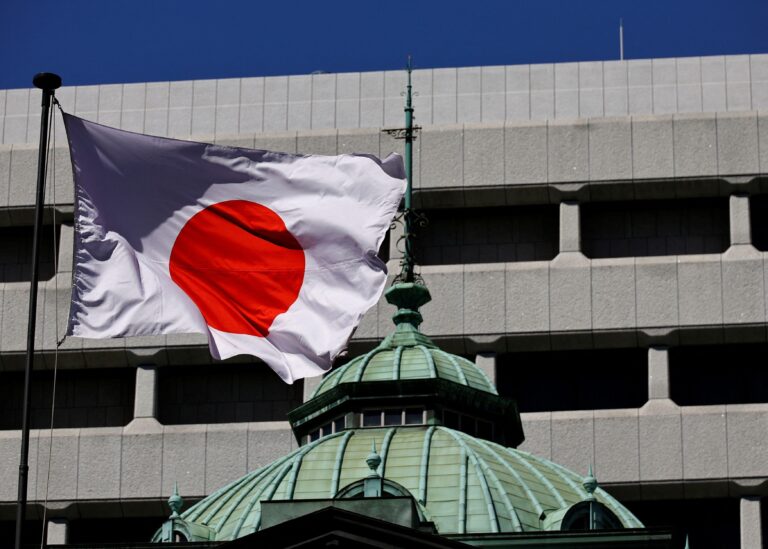Japan’s latest flash Purchasing Managers’ Index (PMI) signals a modest improvement in business activity, according to figures released on TradingView. While the data points to a slight uptick in manufacturing and services sectors, cautiousness remains prevalent among companies amid ongoing economic uncertainties. This mixed outlook underscores the challenges Japan faces as it navigates a fragile recovery in the wake of global disruptions.
Recapping Japan Flash PMI Signals Modest Economic Uptick Amid Persistent Challenges
Japan’s latest flash PMI data reveals a cautious yet hopeful scenario for the nation’s economic trajectory. The manufacturing sector recorded a slight expansion, buoyed by increased demand both domestically and abroad. However, the pace of growth remains restrained due to ongoing supply chain disruptions and surging input costs, factors that continue to exert pressure on margins. Service industries, while showing modest gains, reflect a hesitant business environment influenced by lingering uncertainties in global markets and fluctuating consumer sentiment.
- Manufacturing PMI: 50.8 (above the neutral 50 mark)
- Services PMI: 51.2, signaling slight expansion
- Input costs: Elevated, impacting profitability
- Output prices: Rise noted, but growth tempered by cautious demand
| Sector | Flash PMI | Trend |
|---|---|---|
| Manufacturing | 50.8 | Modest growth |
| Services | 51.2 | Slow expansion |
| Business Sentiment | Neutral | Cautious outlook |
Despite the overall positive tilt, companies remain vigilant as geopolitical tensions and inflationary pressures persist. The measured improvement in the flash PMI underscores a fragile balance between recovery and risk, with many firms opting to prioritize operational efficiency over aggressive expansion. This cautious stance suggests that while the economy may be edging upward, stakeholders are preparing for a potentially volatile environment ahead, signaling continued challenges in achieving sustained momentum.
Manufacturing and Services Sectors Show Divergent Trends Highlighting Uneven Recovery
Japan’s manufacturing sector exhibited signs of resilience in the latest flash PMI data, posting a modest uptick in output and new orders. Key manufacturers reported strengthening demand from export markets, particularly in electronics and automotive components, which helped offset some of the domestic headwinds. Despite these positive signals, supply chain disruptions and rising input costs continue to weigh on production efficiency, prompting firms to adopt cautious approaches to inventory and workforce management.
Meanwhile, the services sector painted a more subdued picture, with activity contracting for the second consecutive month. The drag was attributed to sluggish consumer spending and ongoing COVID-19 precautionary measures impacting hospitality and retail businesses. Service providers remain wary about the pace of recovery, citing uncertainties around inflationary pressures and geopolitical tensions.
Key Highlights:
- Manufacturing PMI: 51.3 (expansion, up from 50.6)
- Services PMI: 48.7 (contraction, down from 49.2)
- Export orders: Increased, driven by tech exports
- Inflation impact: Elevated input costs in manufacturing
| Sector | Current PMI | Trend | Key Concern |
|---|---|---|---|
| Manufacturing | 51.3 | Expansion | Supply chain disruptions |
| Services | 48.7 | Contraction | Weak consumer demand |
Experts Recommend Cautious Business Strategies to Navigate Lingering Market Uncertainties
Market analysts emphasize that despite a slight uptick in Japan’s flash PMI, businesses remain vigilant amid ongoing uncertainties. Economic headwinds such as fluctuating global demand, supply chain issues, and geopolitical tensions contribute to a cautious approach among corporate leaders. Experts suggest that companies prioritize flexibility and risk management over aggressive expansion, ensuring resilience against potential setbacks. Key recommendations include:
- Maintaining liquidity buffers to withstand short-term shocks
- Diversifying supply chains to minimize exposure to disruptions
- Focusing on core competencies and avoiding high-risk ventures
Moreover, some financial strategists advocate for gradual investment in innovation and technology but stress that these moves must be balanced with cost control measures. The prevailing sentiment encourages a pragmatic stance, balancing modest optimism with preparedness for slower growth periods. The table below outlines a concise comparison of recommended priorities in the current environment:
| Priority Area | Recommended Approach | Expected Outcome |
|---|---|---|
| Liquidity | Building reserves | Enhanced stability |
| Supply Chain | Source diversification | Reduced vulnerability |
| Investment | Selective and incremental | Sustainable growth |
In Retrospect
In summary, while the latest Japan Flash PMI data signals a modest improvement in business activity, underlying caution among companies remains evident. Market participants will continue to monitor upcoming economic indicators closely to gauge whether this tentative recovery can gain consistent momentum amid ongoing global uncertainties.




